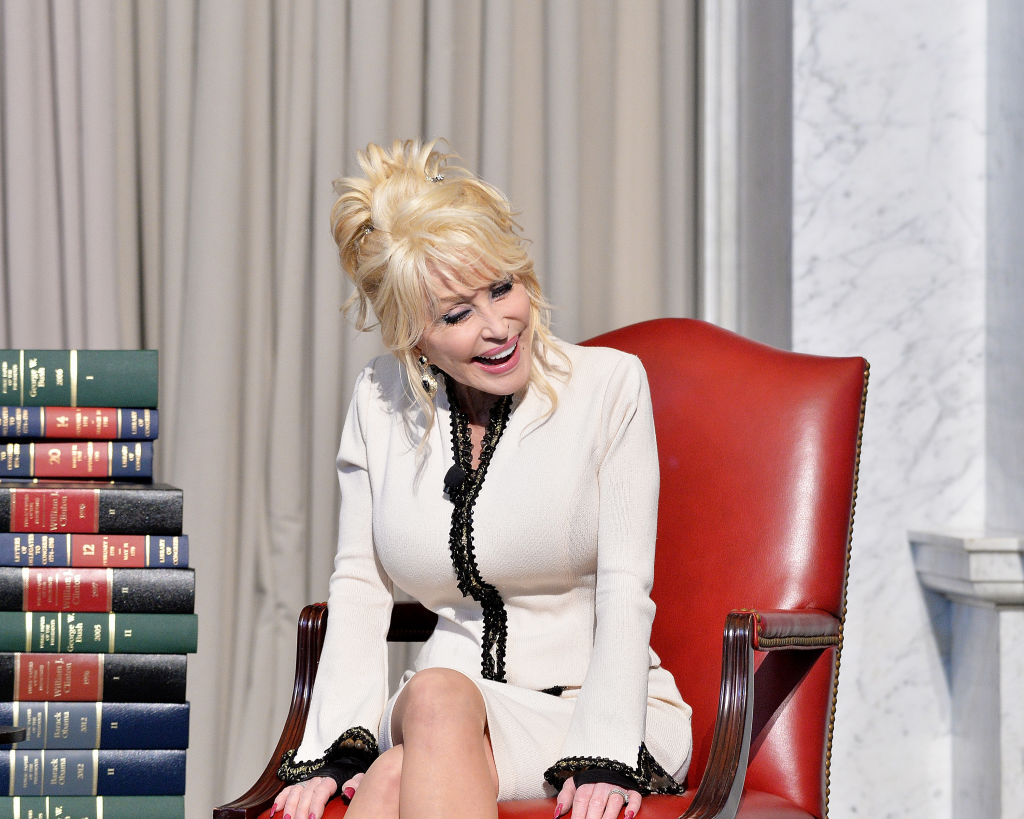Celebrities spending their money encouraging children to read is “white saviourism” now, or so we’re told. An academic has published a dissertation criticising veteran country singer and philanthropist Dolly Parton’s Imagination Library — an international initiative that sends free, quality books to any child under 5 who requests them — for wrongthink, including depicting heterosexual parents or implying it might be good to get a job when you grow up.
Is this just another example of woke insanity? The Telegraph referred to it as “academic verbal diarrhoea”, and Buckingham University professor Alan Smithers denounced “a blatant example of the corruption of thought that schools and universities in the Western world are promoting”. But a closer look reveals a perhaps more salient dimension: self-interest.
Imagination Library was founded by Parton in 1995. Inspired by her father, who could not read or write, it initially served her home county in Tennessee. It subsequently expanded nationwide, sending its millionth free book in 2003, then spreading to Canada in 2006 and the UK in 2007. With the help of local partners, the scheme posts a free monthly book to any child under five whose parents register for it. The aim is to encourage positive parenting, strong parent-child relationships, and a love of reading.
You’d think the benefits would be obvious, especially for children whose areas are not well-served by public libraries or bookshops, and whose parents cannot afford to buy much reading material. According to the doctoral thesis written by speech and language pathologist Jennifer Stone, though, Imagination Library’s book list is potentially problematic due to the ways it contributes or refuses to contribute to “intersectional” discourse.
But perhaps it’s not surprising that Stone should write a PhD on these themes — or have a stake in tilting the conversation toward her preferred worldview. Stone is an early-years professional with substantial experience in public and NGO employment on child development. She’s clearly committed, too: in 2014 she founded Read ENC, a North Carolina children’s literacy initiative. As well as being an effective publicity tool, given the outrage it’s provoked, Stone’s thesis is implicitly a demand for a seat at the table.
Stone presented her findings to Imagination Library, which raises the question: was she, perhaps, hoping for paid employment rewriting their book list? Since completing her PhD she has also started a consulting business based on the “intersectional analysis framework” she developed during the doctorate. In other words: what’s afoot here is arguably less wanton destructiveness than an effort to shift the premises of Stone’s chosen field in a direction that suits her own professional expertise and moral disposition. It’s clear, after all, from Stone’s other professional activities (Read ENC includes Imagination Library access) that she doesn’t want the scheme to be dismantled. She just wants it to be more Jennifer Stone-flavoured.
Stone’s intervention should be understood in its economic context: one of elite overproduction, intensifying competition for NGO resources, and dwindling early-years funding. It follows the same pattern as many seemingly quixotic “woke” interventions. Such salvos usually present themselves as motivated by high-minded willingness to challenge convention in the name of integrity and inclusion; to nonbelievers, they commonly read as inexplicable, malign efforts to smash or pollute something that’s working just fine.
It’s commonly the case, though, that the most obvious implications of such an intervention are neither greater inclusion or (conversely) cultural vandalism, but the shifting of resources toward whoever is making the criticism. That is, less vandalism than pump-priming. This paper is no exception: it is, like many other supposedly “woke” interventions, less a work of criticism than a job application.











Join the discussion
Join like minded readers that support our journalism by becoming a paid subscriber
To join the discussion in the comments, become a paid subscriber.
Join like minded readers that support our journalism, read unlimited articles and enjoy other subscriber-only benefits.
Subscribe